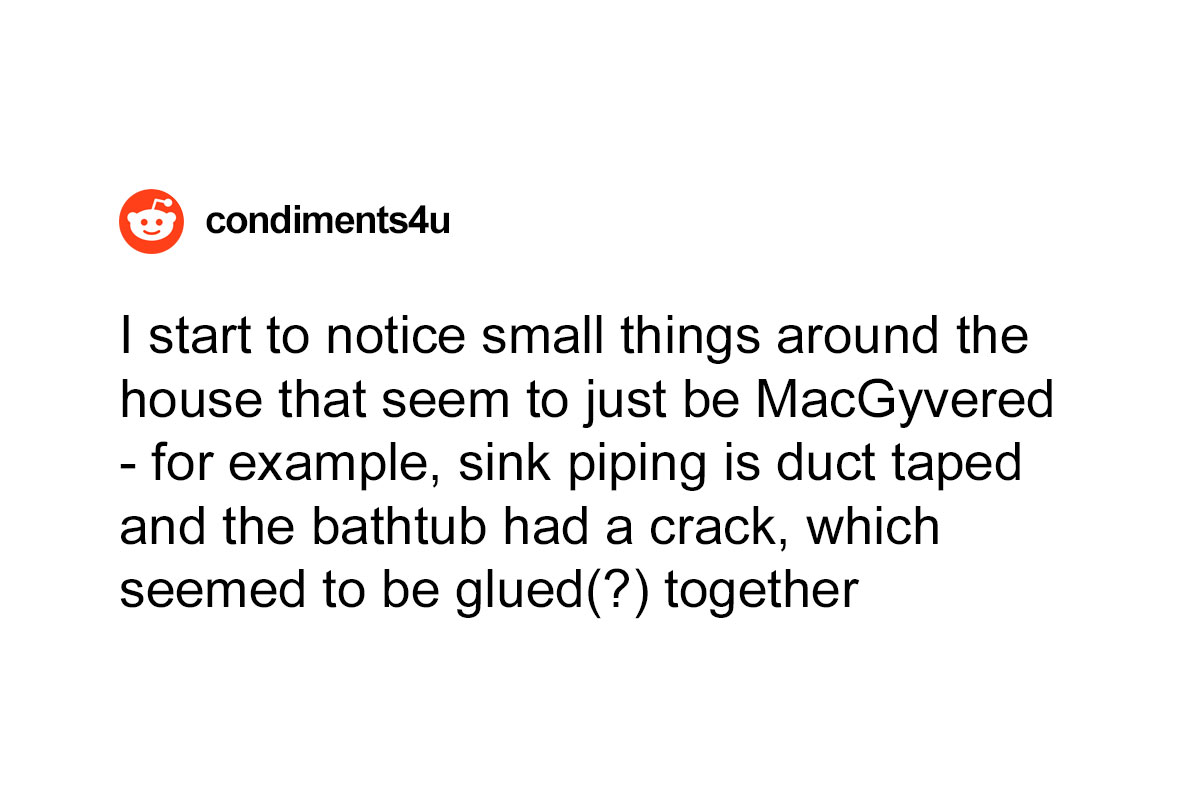
Tenant Finds Mold In The House Landlord Refuses To Do Anything, Tenant Makes Him Regret It
Interview With AuthorRenting a home creates a binding agreement between the tenant and their landlord. Though the exact details of each and every contract might differ, the essence remains the same: the tenant promises to treat the property with respect while the landlord is in charge of the necessary maintenance and repairs. Ideally, both sides can work together to ensure a high level of living. But we’re not living in an ideal world now, are we? If one side fails in their duties, things fall apart.
Redditor u/condiments4u opened up about how they got back at their landlord who refused to fix a mold overgrowth problem that was making the OP’s life hell. The landlord ended up paying at least $50k in fines for their ignorance. Read on for the full story.
Bored Panda reached out to the author of the thread, redditor u/condiments4u, and they were kind enough to share their thoughts on what happened, and shared some spot-on tips for anyone who’s completely new to renting. Scroll down for our full interview with the OP.
Mold thrives in damp places and can be a health hazard
Image credits: Extreme_Fisherman657 (not the actual photo)
One internet user shared how they got back at their landlord after they failed to fix a serious mold problem
Image credits: Gustavo Fring (not the actual photo)
Image credits: Plymouth Ansbergs (not the actual photo)
Image credits: condiments4u
The landlord seemed set on ignoring any and all issues, no matter how serious
It wasn’t immediately apparent that the wooden home the OP had moved into back in college was unfit for habitation. However, they quickly realized that something was wrong. Their allergies were acting up. And even more disturbingly, their cat was behaving extremely weirdly. It was only after a trip to the vet that a theory began forming in the redditor’s mind: it was probably due to mold.
Lo and behold, a bit of investigative work led to the truth. The landlord had haphazardly tried to cover up the areas where the mold went wild in the damp, unventilated house. Redditor u/condiments4u tried to be diplomatic at first. They got in touch with their landlord, asking him to fix the issue. However, he didn’t take it seriously and never showed up.
So the OP did some research. They looked up the local laws and decided to reach out to the municipality, which sent an inspector to evaluate the size of the problem. Even at this point, the landlord was unwilling to put in the work to improve the property. After the OP moved out (luckily, they quickly found a better place!), they learned that their former landlord had paid at least $50k in fines. Justice served? Absolutely.
Image credits: Ketut Subiyanto (not the actual photo)
Luckily, the tenant’s cat made a speedy recovery
We were interested in getting the OP’s thoughts as to why their former landlord was so reluctant to maintain the property properly. According to u/condiments4u, he was likely cutting costs. “I imagine he didn’t want to fix it given the high cost of removing mold and repairing damage,” they told Bored Panda.
“There was a high demand for housing in the area, and I’m sure he would have had no problem finding another person to move in if I broke the lease,” the redditor explained to us.
The OP revealed to us that they reacted with a combination of “surprise and fear” when they finally realized there was a massive mold problem in the house.
“We’ve all heard of the dangers of black mold. It was bad enough to affect my cat and me without being overt, and now that I discovered it there was a fear that the spores spread,” they said.
“Thankfully, I had a friend who could watch my cat, who made a quick recovery once out of the house, while I dealt with the landlord,” the redditor told Bored Panda when we asked them about their pet.
The redditor shared some of their thoughts on what to keep in mind when someone’s new to renting, as well as what red flags to look out for in landlords.
“I’d advise anyone renting a place to always be thorough at the walk-through, especially if the place feels damp or smells musty. Make sure to read your lease and get acquainted with local codes,” they urged.
“Finally, communicate with landlords in written form so there’s a paper trail. I’ve learned these lessons over the years—while there are many good landlords, there’s still the possibility you’re dealing with someone for whom profit is their only concern, and in these instances, you really need to advocate on your behalf.”
Proper ventilation is vital to prevent mold from spreading
Mold is extremely common everywhere and it’s nearly impossible to prevent it from entering your home. However, it doesn’t mean that it’ll spread everywhere: it thrives in wet places, like around leaks and areas affected by flooding.
It grows especially well on wet cardboard, paper products, ceiling tiles, and wood products. What’s more, the CDC warns that it can also grow in dust, wallpaper, insulation, drywall, carpet, fabric, and upholstery.
Some people can be very sensitive to mold: they may wheeze, have a stuffy nose, or have itchy eyes or skin. Others may even suffer from fevers and shortness of breath.
The best way to prevent mold from thriving in your home is to properly maintain the building. Look for signs of visible mold and water damage, as well as large concentrations of condensation. Ensure that these areas are dried and cleaned properly.
Meanwhile, consistently ventilate the area and reduce the humidity either with an air conditioner or dehumidifier. Cracking open a window works, too! You may also want to avoid having carpets in your bathroom because they’re potentially good breeding grounds for mold. If you see that a carpet’s moldy, throw it out and clean the area.
All of this can be prevented by having a landlord who properly maintains the property and cares about the quality of life their tenants have. If someone’s paying for rent, the last thing they want is to breathe in mold spores all day long. Though it’s difficult to gauge whether you’re dealing with a good or bad landlord when first meeting them, there are some subtle signs that you might need to look for alternatives.
Image credits: anotherholymoly (not the actual photo)
It’s essential that you recognize the early warning signs that you might be dealing with a bad landlord
For instance, one giant red flag is if your landlord doesn’t let you view the property before moving in. You should never—and we mean never!—sign a lease before you’ve at least toured the place. Otherwise, you’ll end up renting an apartment potentially full of problems with no choice but to live there until either your lease ends or you break the contract and lose your deposit.
It also helps if you take your landlord’s comments about the property with a grain of salt. Renthop notes that, for example, if they try to downplay the mold issue in the property, then the problem is likely far more serious. Similarly, if they say that there are some issues with the household appliances, expect them to act up far more frequently than you’d have initially thought.
What’s more, you should read the contract in detail before signing it. If there’s any vagueness that sets off your alarm bells, ask your landlord to clear it up and change the phrasing. Proper landlords aren’t afraid of modifying the contract to suit both parties; bad ones will try to get you to sign it ASAP.
Image credits: Karolina Grabowska (not the actual photo)
The author of the post shared some more details about what happened in the comments
Here’s how some other readers reacted to the story
Some renters shared their own nightmare stories
Scary and stressful situation. Long story with my elderly dad neglecting his duplex for years, but suffice to say: he wanted to sue a roofer over a roof leak instead of effing fixing the problem. I was terrified that there was mold in the walls from months of leaking. I hired an experienced building manager who saved me money and my sanity by taking care of the problem. And no mold - much to my surprise! And it wasn't the roof, it was a pipe. Grrrr... Now every time my dad mentions lawyers, I go selectively deaf. In the above case, legal measures are definitely warranted. I can't even begin to imagine the poor folks having to move because of some effing slum lord.
In most cases, being a landlord is a business. If you run your business in such a negligent way, you deserve the consequences. I deal with (potential & actual) guest liabilities each & every day for a small resort portfolio. I’m their insurance when VIPs have/create issues. Because reputations & violations, they invest heavily. Managing or owning rental property needs to be considered no different from any hotel, restaurant, retail store or office. - 2nd tangent: undergrad I lived in a 4-unit apt, 10 renters in the building. 2 of us got sick. I was in hospital for nearly a month & on a picc line for 12 weeks, due to black mold contamination. Something landlords were aware of, given notice & fined for, but didn’t act on the liability issue. Besides a judgement against them from 9 of us 10 residents, the fines and the moving expense they paid, they filed bankruptcy, short-sold all 3 of their properties & filed personal bankruptcy because they didn’t incorporate their business.
Scary and stressful situation. Long story with my elderly dad neglecting his duplex for years, but suffice to say: he wanted to sue a roofer over a roof leak instead of effing fixing the problem. I was terrified that there was mold in the walls from months of leaking. I hired an experienced building manager who saved me money and my sanity by taking care of the problem. And no mold - much to my surprise! And it wasn't the roof, it was a pipe. Grrrr... Now every time my dad mentions lawyers, I go selectively deaf. In the above case, legal measures are definitely warranted. I can't even begin to imagine the poor folks having to move because of some effing slum lord.
In most cases, being a landlord is a business. If you run your business in such a negligent way, you deserve the consequences. I deal with (potential & actual) guest liabilities each & every day for a small resort portfolio. I’m their insurance when VIPs have/create issues. Because reputations & violations, they invest heavily. Managing or owning rental property needs to be considered no different from any hotel, restaurant, retail store or office. - 2nd tangent: undergrad I lived in a 4-unit apt, 10 renters in the building. 2 of us got sick. I was in hospital for nearly a month & on a picc line for 12 weeks, due to black mold contamination. Something landlords were aware of, given notice & fined for, but didn’t act on the liability issue. Besides a judgement against them from 9 of us 10 residents, the fines and the moving expense they paid, they filed bankruptcy, short-sold all 3 of their properties & filed personal bankruptcy because they didn’t incorporate their business.
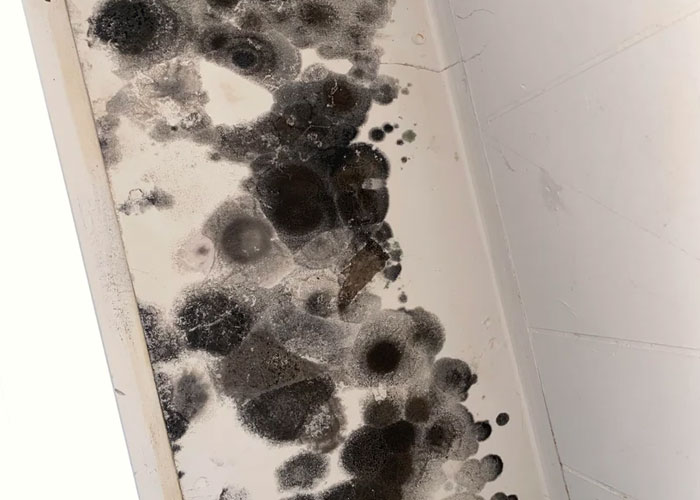
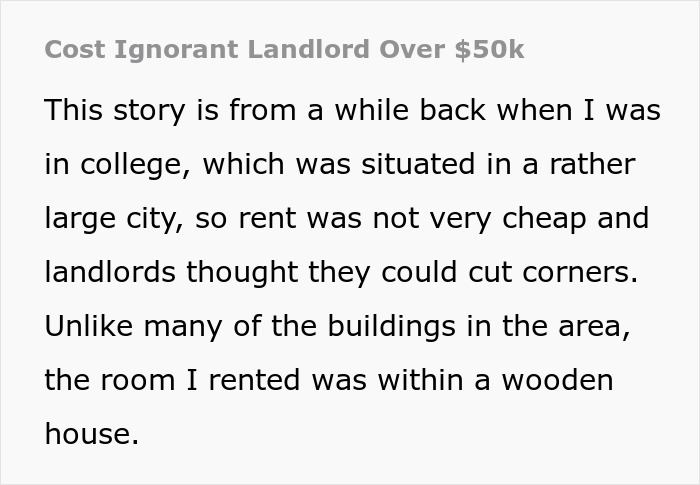
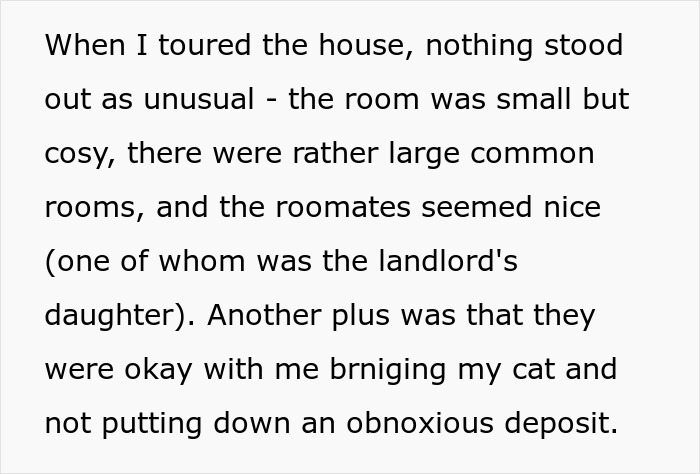
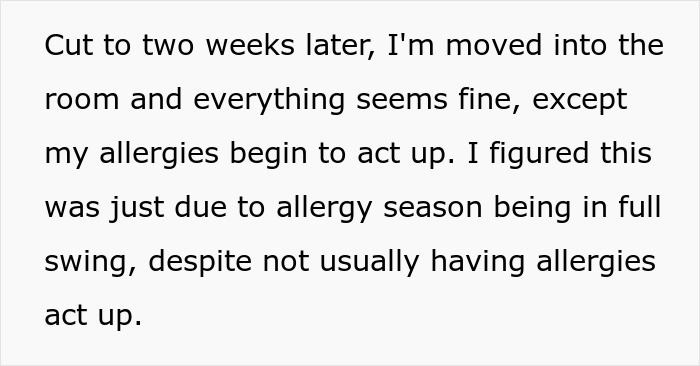
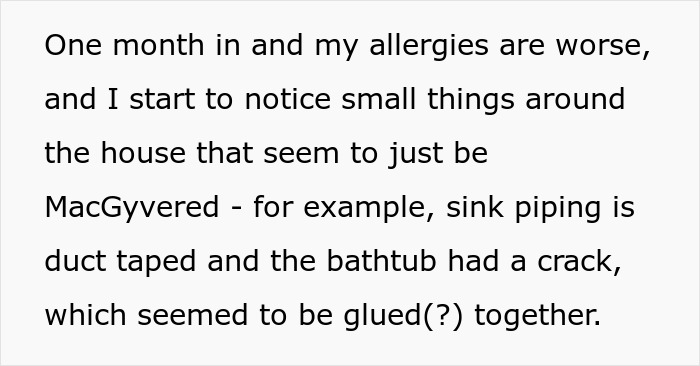
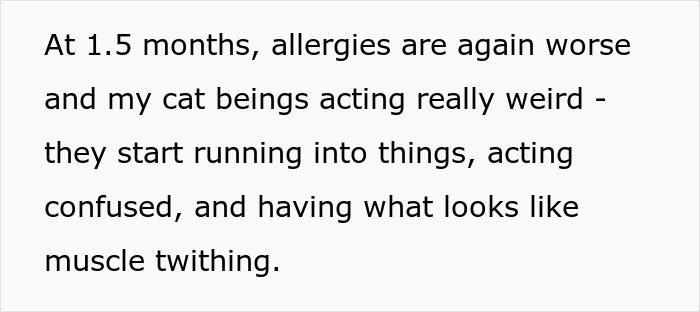
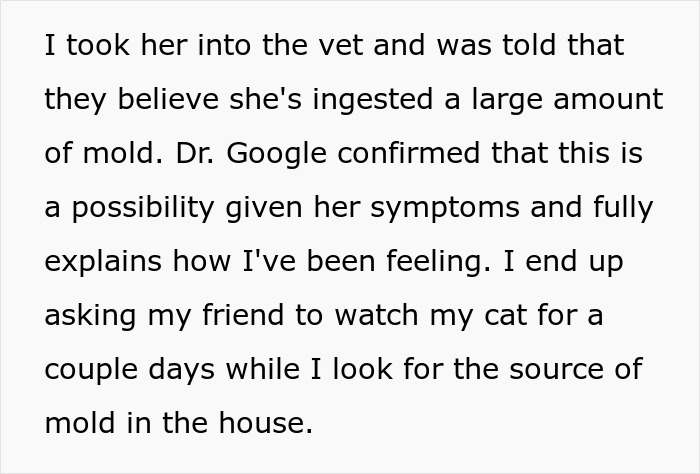

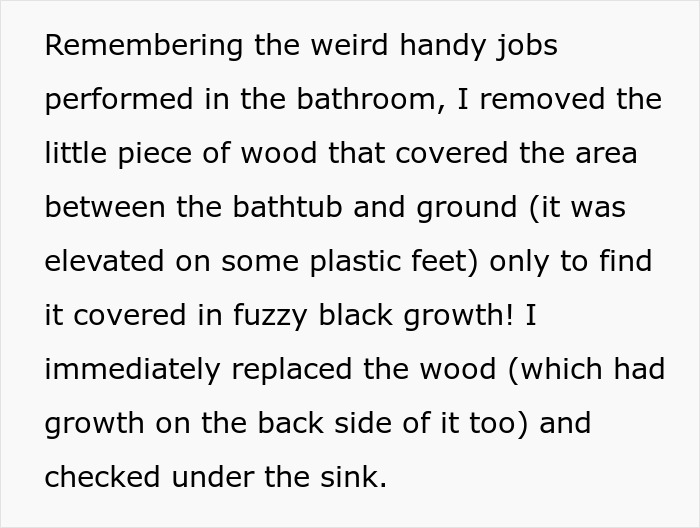
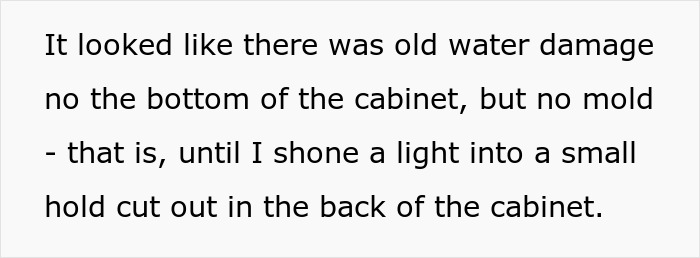
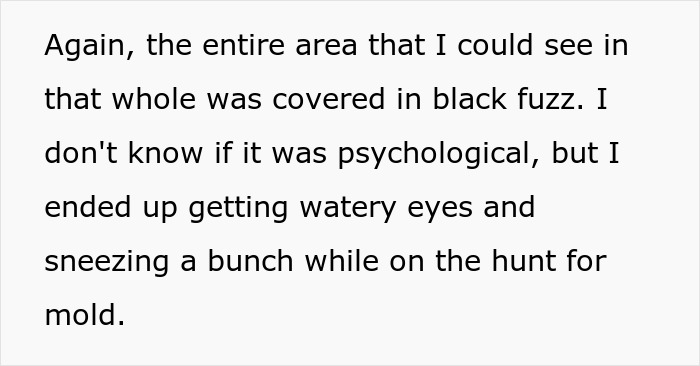
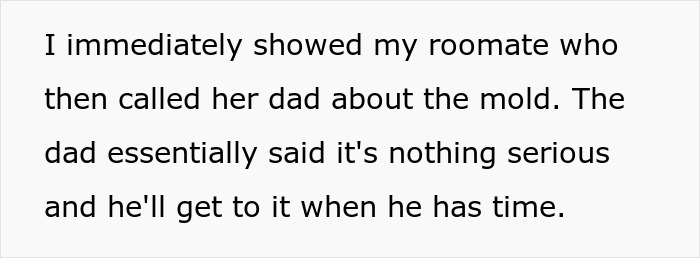
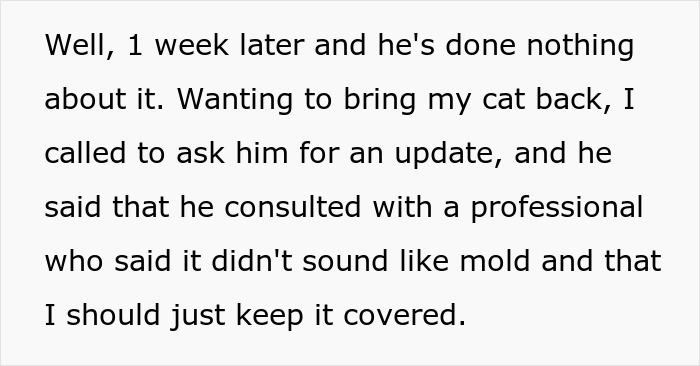
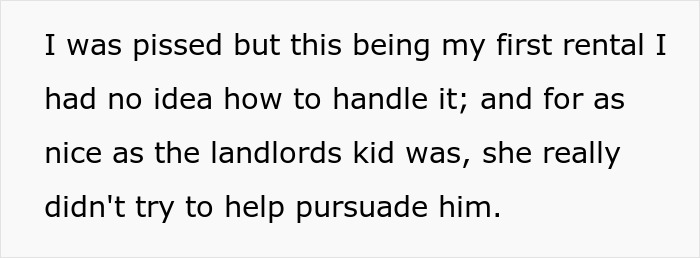
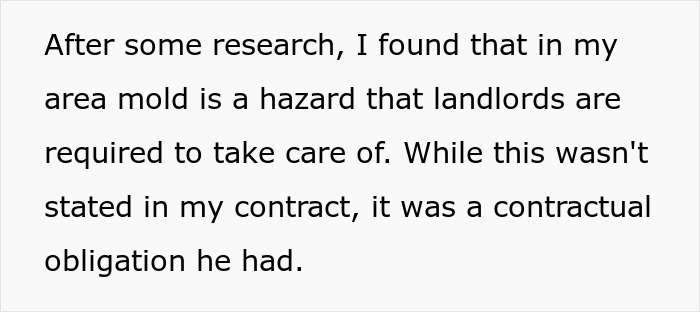
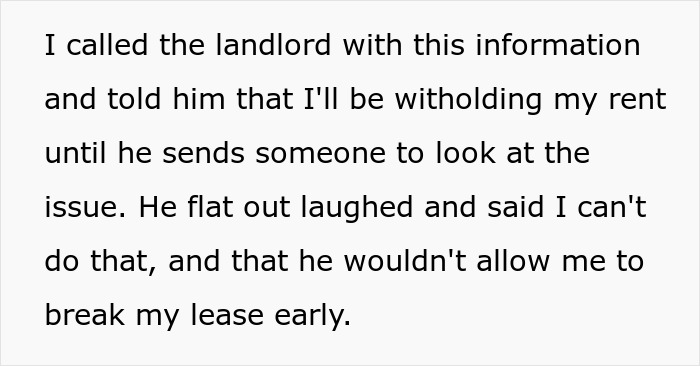
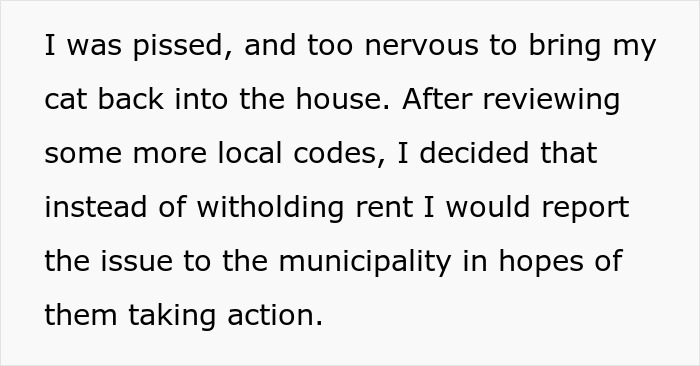
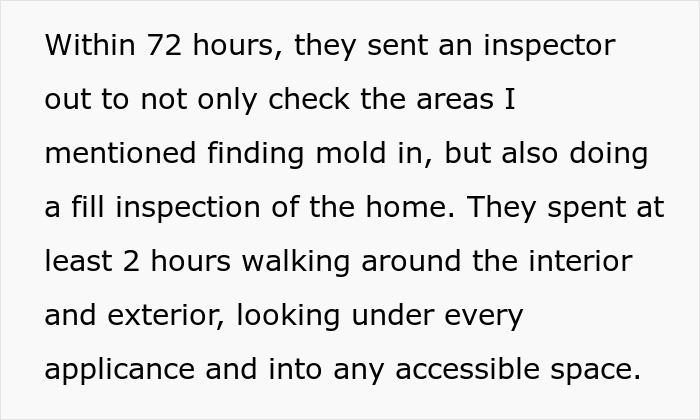
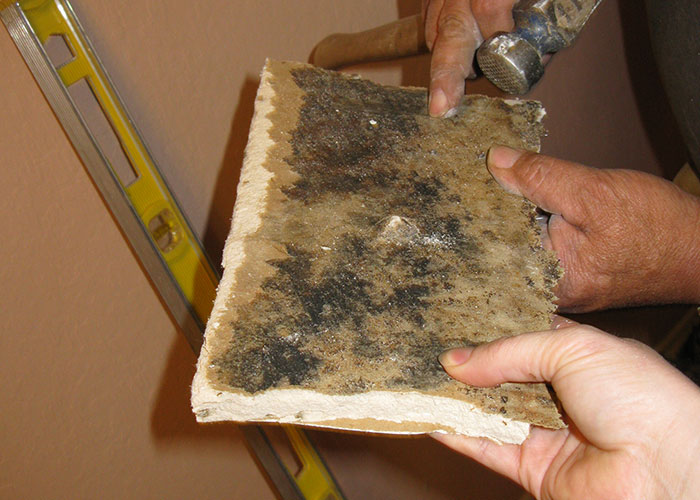
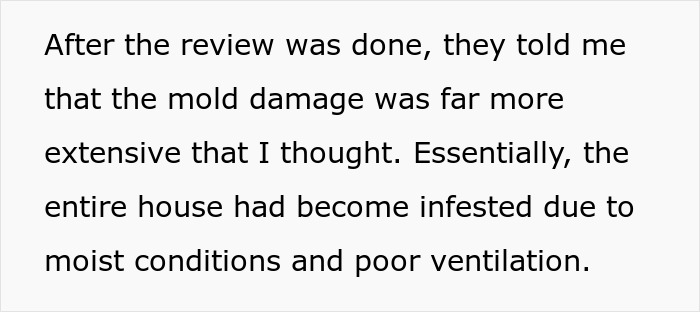
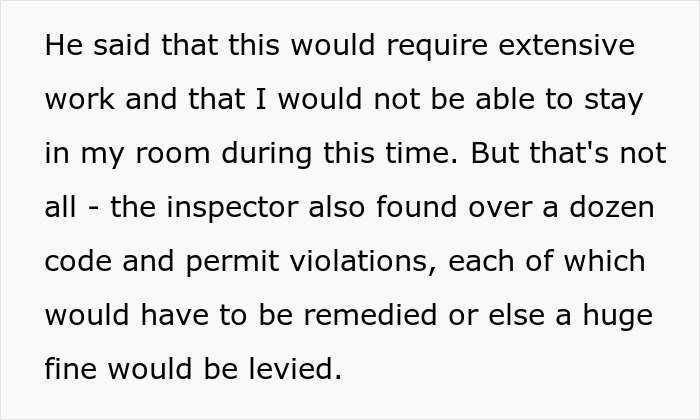
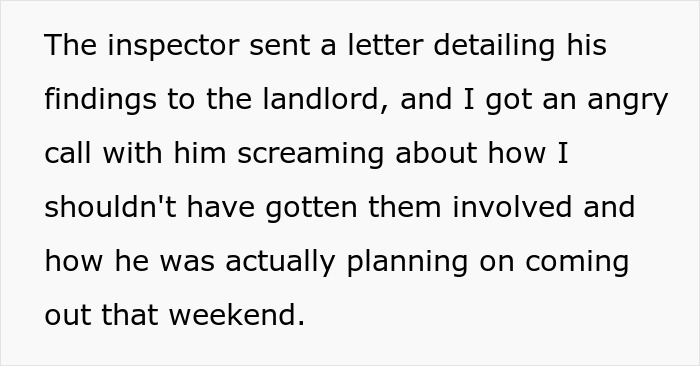
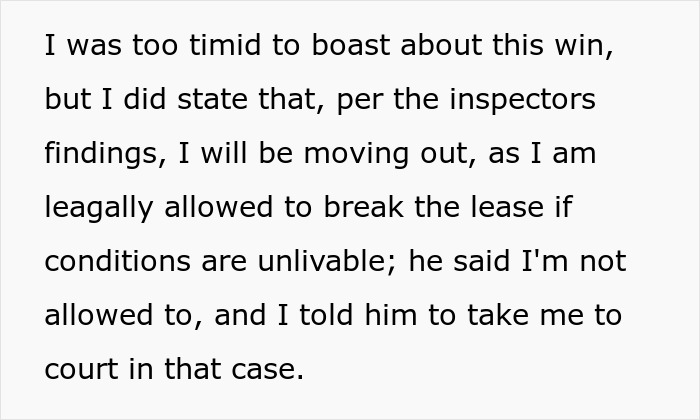
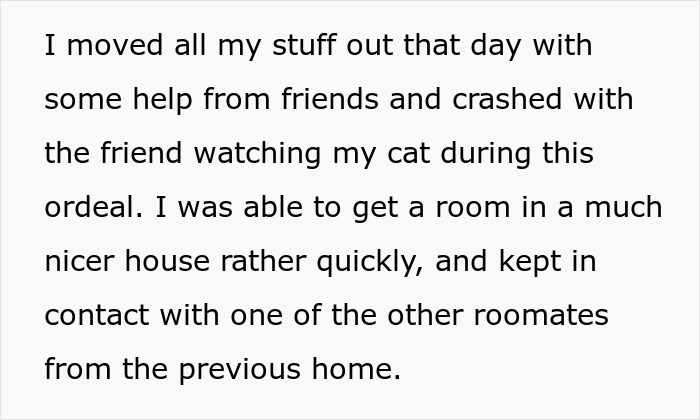
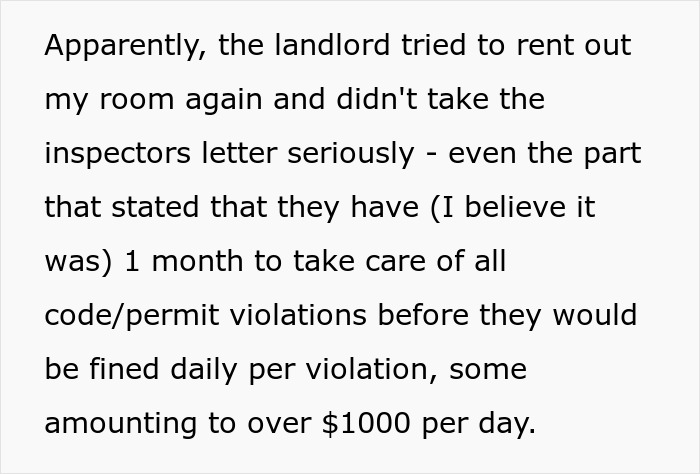
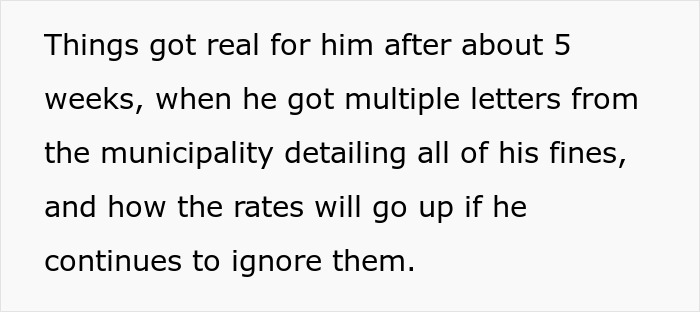
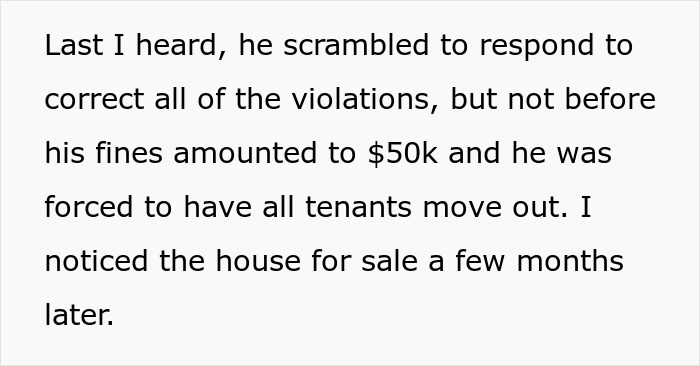
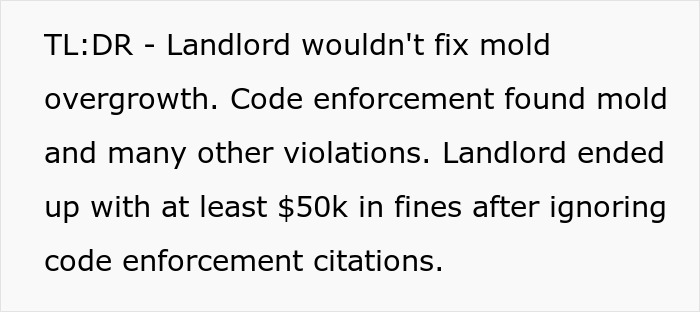
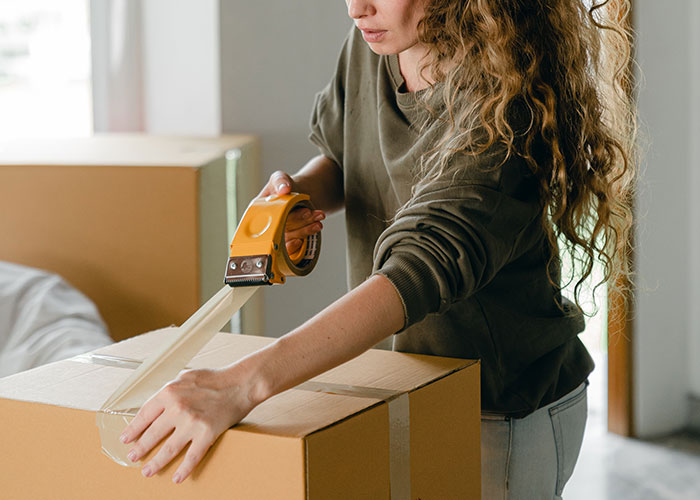
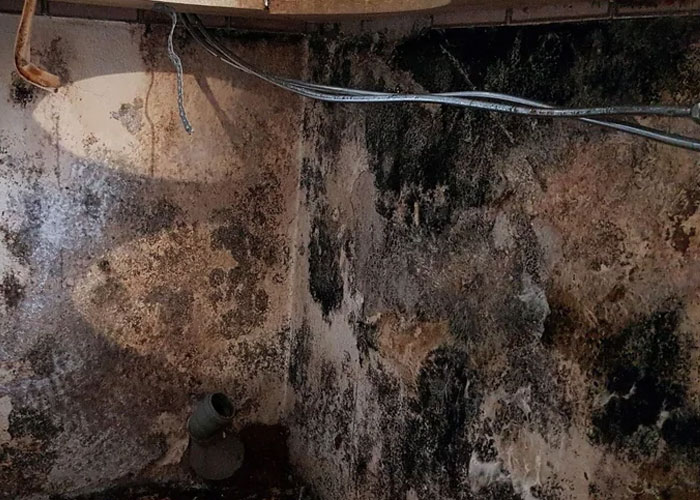

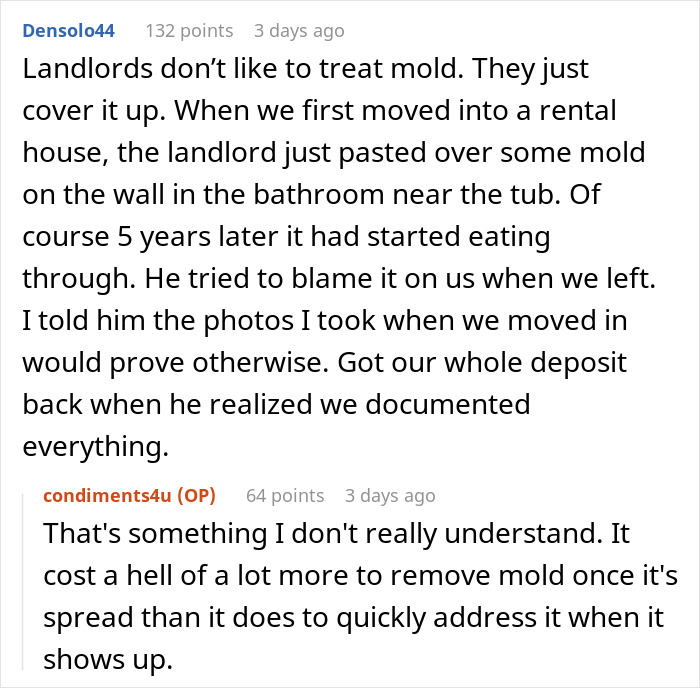
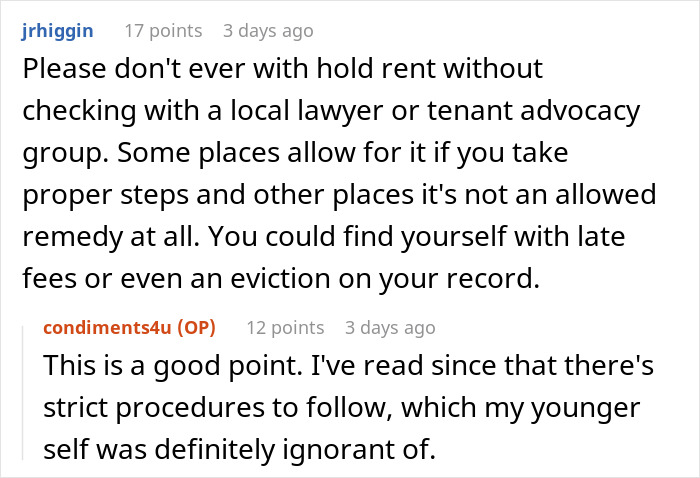
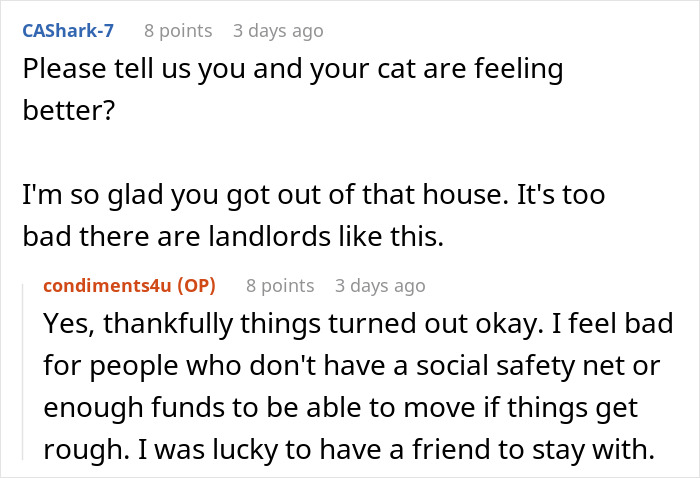
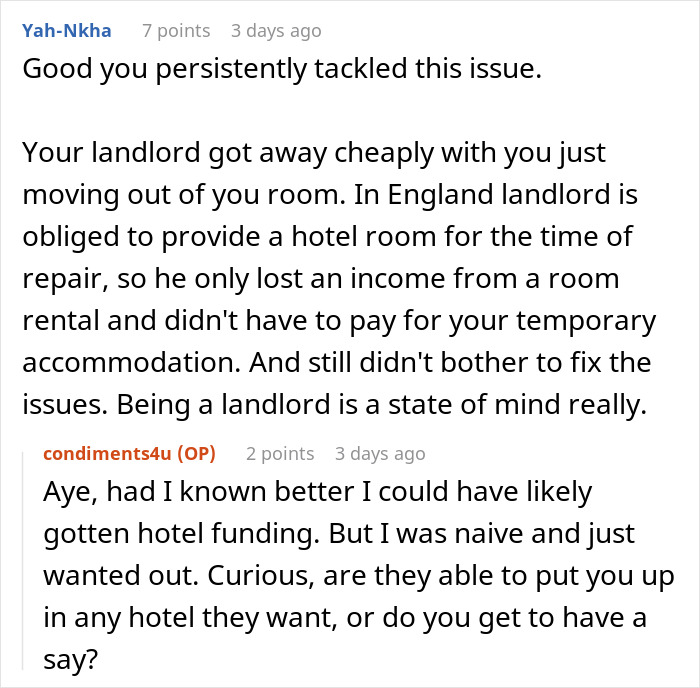
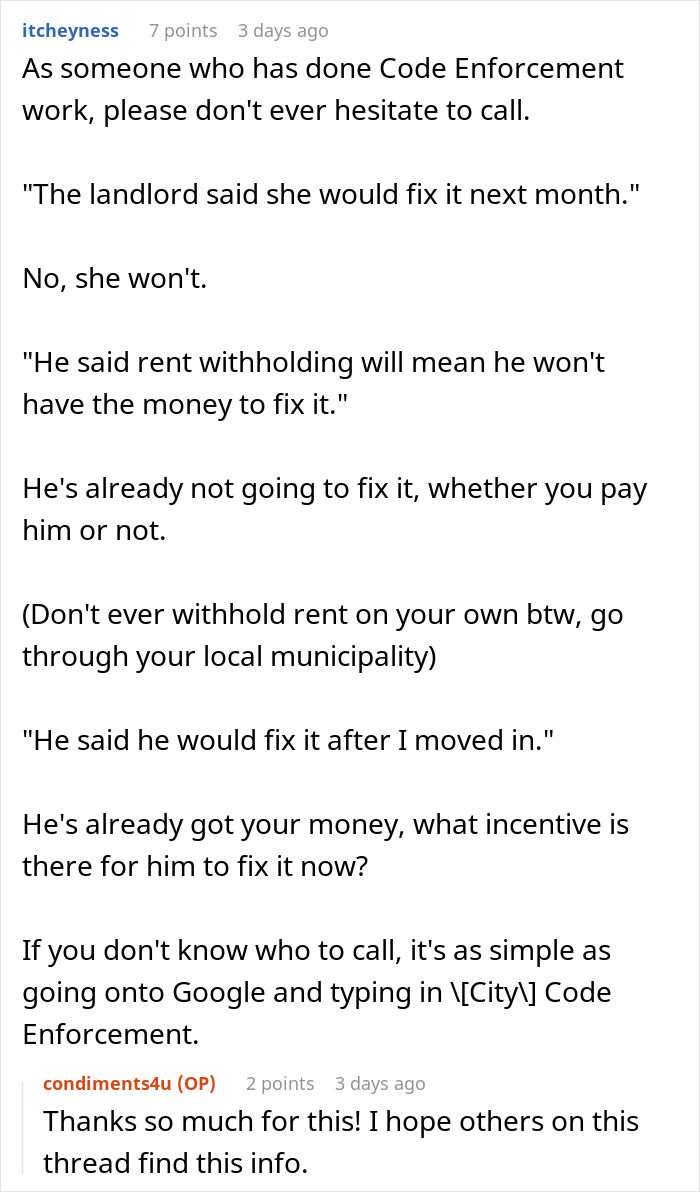
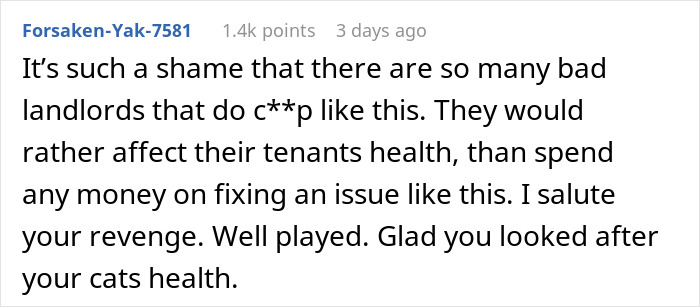




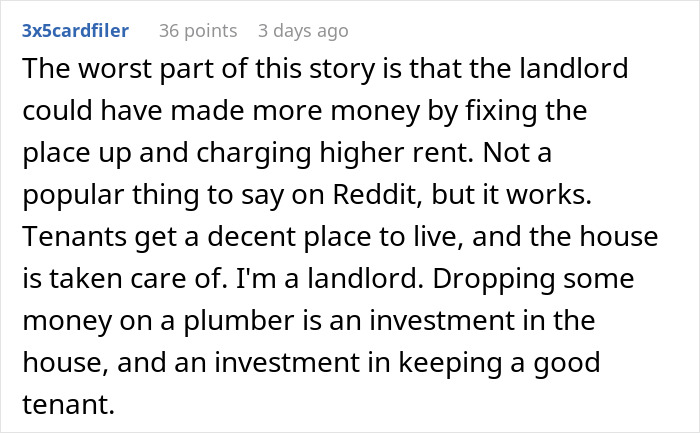

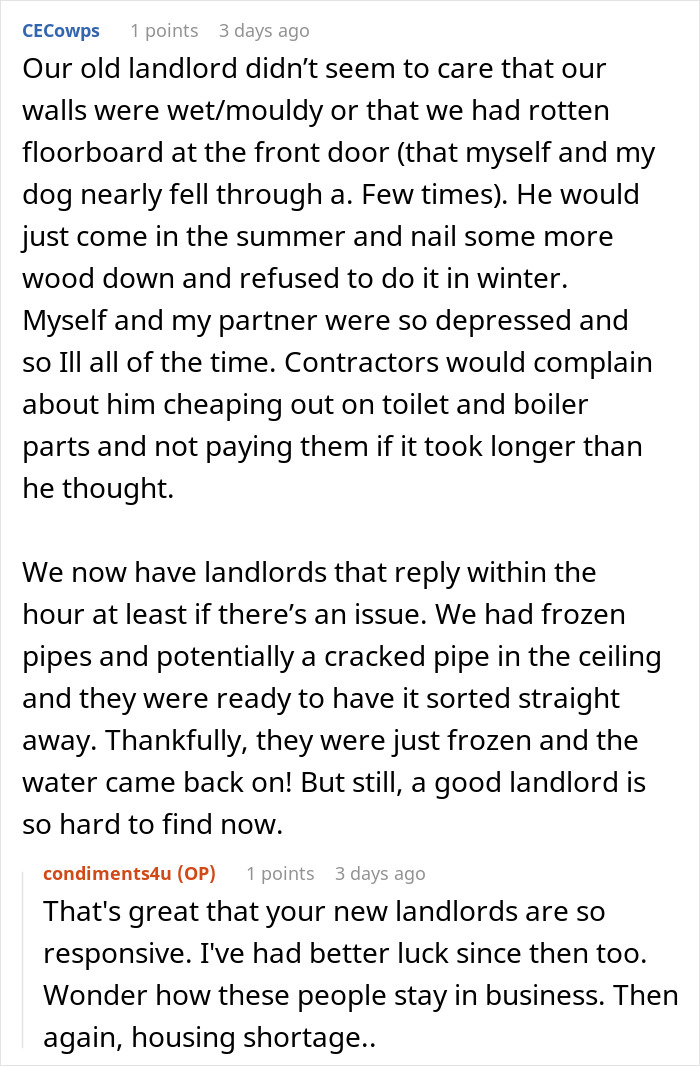
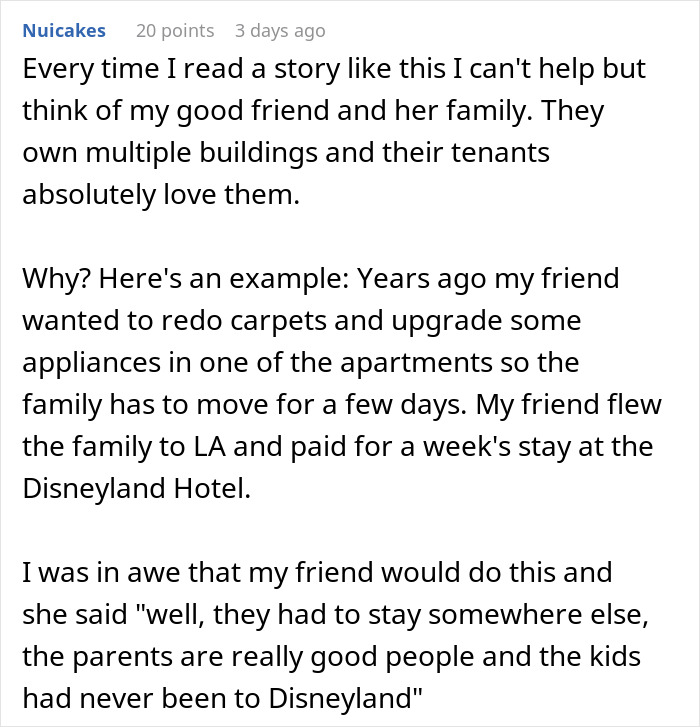




79
16